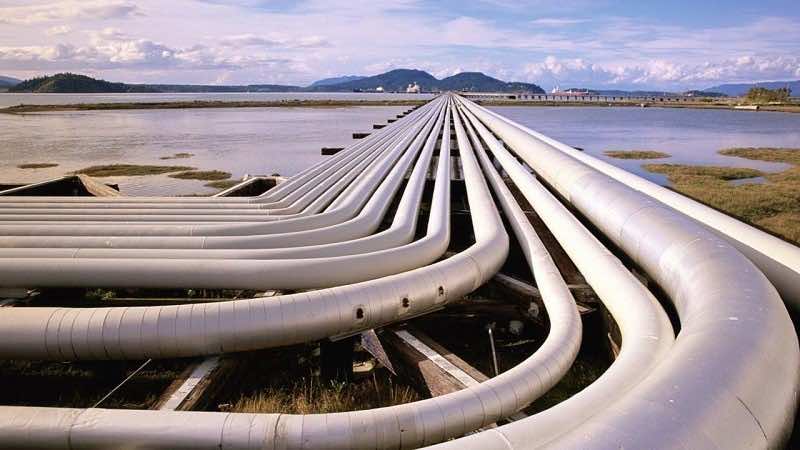

On Sunday, King Mohammed VI celebrated the project as a milestone that would help Africa achieve energy independence.
ECOWAS Ready to ‘Fully Support’ Nigeria-Morocco Gas Pipeline
Onshore pipeline
Rabat - The Commission of the Economic Community of West African States (ECOWAS) expressed determination to provide “its full support” for the Nigeria-Morocco Gas Pipeline project.
ECOWAS Commissioner in charge of Infrastructure, Energy; and Digitalization Sediko Douka was full of praise for the project initiative from Nigeria and Morocco, “saluting” the two countries for “having had this vision of the future which will definitively establish the energy independence of our region and the strengthening of South-South cooperation.”
The ECOWAS executive also announced that statutory bodies of the project, including the steering committee and the technical committee will “meet shortly for its implementation,” stressing that the project comes at the right time due to the lack of means of energy production in the ECOWAS region.
“Our energy demand is only 60% covered, with an expensive tariff or around 0.24 USD/kWh and a low access rate of 53%,” Douka said.
Douka made his remarks a day after King Mohammed VI’s speech that commemorated the 47th anniversary of the Green March. During his speech, the monarch expressed Morocco’s commitment toward the project, which will enable Africa to be self-sufficient and independent in terms of energy production.
“I want this to be a strategic project that benefits all of West Africa – a region which is home to more than 440 million people,” the King said, emphasizing that the project will ensure peace for African economic integration and for co-development.
Echoing the King’s positive position on the project, Douka said that the Morocco-Nigeria gas pipeline will enable member states producing natural gas to benefit from it for the production of energy and the use of gas for domestic purposes.
The ECOWAS Commission signed a memorandum of understanding with Morocco’s National office of Hydrocarbons and Mines (ONYUM) and Nigeria’s National Petroleum Company Limited (NNPC) in September.
The agreement is part of the framework of the construction of the pipeline, mobilizing the resources to enable the development and implementation project as a single work.
The $25 billion project will cover 5,600 kilometers spanning over 11 countries along the Atlantic coast, with the ambition of benefiting over 340 million inhabitants.
Morocco will host 1,672 kilometers of the pipeline, connecting it to Europe through Spain, during a time where the continent could be looking to diversify its energy sources.
The King of Morocco, in his speech to the nation on the occasion of the 47th anniversary of the Green March, revived the project to build a gas pipeline between the Kingdom and Nigeria, expressing his commitment to boost the prosperity of West Africa, "Morocco decides to promote as soon as possible the project of the gas pipeline with Nigeria", which will run more than 7,000 kilometres along the west coast, crossing the coasts of 13 countries (Ivory Coast, Liberia, Sierra Leone, Guinea Conakry, Guinea Bissau, Gambia, Senegal, Mauritania and finally Morocco) of the African continent, ending its route in Europe.
The Alawi monarch stressed the importance of the gas pipeline that will connect his country with Nigeria, emphasising that its benefits are not limited to Morocco, but that it is a strategic project that benefits the countries of West Africa and Europe, in a clear indication that this pipeline will be the most realistic option and the closest to Europe. "In addition to Morocco and Mauritania, the pipeline offers the fifteen member countries of the Economic Community of West African States (ECOWAS) opportunities and guarantees in terms of energy security and socio-economic and industrial development," he said. In this way, energy will be paid for at a lower cost and some sectors, such as the electricity and industrial sectors, will be relieved of their high consumption payments.
|